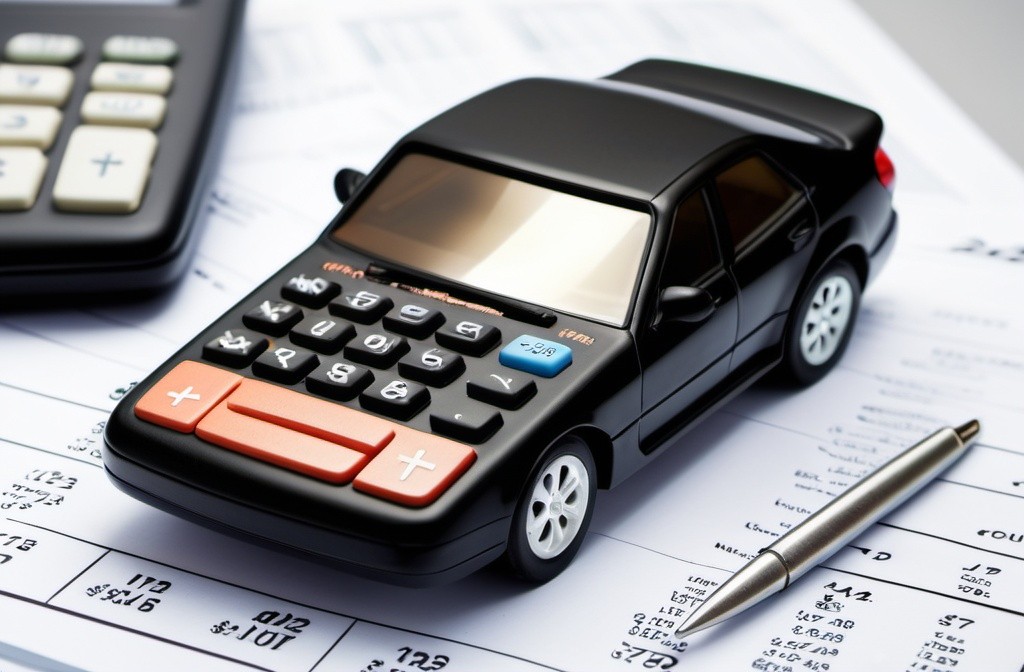In today’s fast-paced automotive market, understanding your vehicle's worth can feel like deciphering a complex code. Whether you're planning to sell your car or aiming to ensure you're getting a fair price when buying, having a precise grasp of vehicle valuation is essential. Many have turned to car calculators to demystify this valuation process, providing insights into how market trends, car conditions, and regional demands affect a vehicle's price.

Understanding Vehicle Valuation
Decoding your vehicle's value begins with understanding the basics of car valuation. This process involves assessing several factors that influence a car's market price. The car's make, model, age, mileage, condition, and even its color can affect its value. For instance, as highlighted by Investopedia, factors such as the desirability of the brand, market demand, and external economic indicators play crucial roles in determining a car's value.
However, while these factors might seem straightforward, the truth is that their interplay can be complex. Market dynamics are always shifting, sometimes rapidly due to technological advancements, regulatory changes, or shifts in consumer preferences. Thus, providing an accurate valuation requires a nuanced understanding of both the car and the broader market environment.
Car Calculators: A Digital Solution
Given the complexity of vehicle valuation, many individuals and professionals have turned to online car calculators. These digital tools help streamline the valuation process by using algorithms that take into account various factors such as market trends, depreciation rates, and specific vehicle details.
Car calculators provide a convenient and accessible means to obtain an estimated value quickly. Sites such as Consumer Reports offer car value estimators that help users gain insights into their vehicle’s current worth based on updated market data. By inputting information about the vehicle's make, model, year, mileage, and other particulars, these calculators can provide an instant estimate.
The Advantages of Using Car Calculators
Car calculators offer several key advantages, most notably their simplicity and accessibility. These tools are often free to use and available online, meaning you can access them anytime, anywhere. Furthermore, they provide a starting point for negotiations, whether you're buying or selling.
Another notable benefit is the ability to quickly compare between different vehicles or price options. For potential buyers, this means easily assessing which vehicles fit their budget. For sellers, it helps to ensure pricing competitively within the current market.
- Accuracy: While not flawless, car calculators provide a highly accurate estimate that reflects current market trends and vehicle conditions.
- Time-Saving: Instead of spending hours searching for comparable prices and trends, calculators offer a quick valuation.
- Informed Decisions: Sellers can avoid undervaluing their vehicles, and buyers can prevent overpaying.
Limitations of Car Calculators
Despite the advantages, it's essential to understand the limitations of car calculators. These tools rely heavily on the data inputted by users, and any inaccurate information can lead to misleading results. Additionally, calculators may not always account for localized market variables or specific vehicle conditions not noted in the data submission.
Moreover, because they largely depend on algorithmic data, they might not capture the unique sentimental or rarity value some vehicles might hold. Classic cars, limited edition models, or highly customized vehicles are often valued differently by niche markets and may require a more detailed appraisal from an expert.
Enhancing the Valuation Process
To get the most out of car calculators, they should be used in conjunction with other valuation methods. Combining digital tools with traditional methods such as visiting reputed dealerships for appraisals or consulting with automotive professionals can provide a more holistic view.
- Multiple Data Points: Utilize several car calculators to receive a range of estimates, providing a broader perspective on potential pricing.
- Market Research: Regularly check listings on automotive websites and in local ads to see how similar vehicles are priced.
- Professional Appraisals: Consider reaching out to certified appraisers for vehicles with a potential higher value.
The Future of Vehicle Valuation
As technology continues to evolve, car calculators and the overall approach to vehicle valuation are bound to become more sophisticated. Integration with artificial intelligence and machine learning could further enhance the accuracy and efficiency of these tools. These advancements could lead to more personalized and comprehensive assessments by interpreting broader ranges of data such as historical sales, economic indicators, and consumer behaviors.
Moreover, as digital retailing continues to shape the automotive industry, having accurate, reliable vehicle valuations will be crucial for both buyers and sellers in setting fair prices.
Conclusion
Understanding the value of your vehicle is not only about securing the best deal during a transaction but also about gaining comprehensive insights into the automotive market. Car calculators play a significant role in this process, offering accessible and efficient means to obtain an initial valuation. By leveraging these tools alongside traditional methods and staying informed about market trends, individuals can ensure they fully unlock the pricing power of their vehicles. Whether you're buying, selling, or simply curious about your car's worth, car calculators are an indispensable resource for navigating today's complex automotive market.
For further insights into vehicle valuation, consider visiting Investopedia or utilizing the Consumer Reports' car value estimator to start decoding your vehicle's value today.



